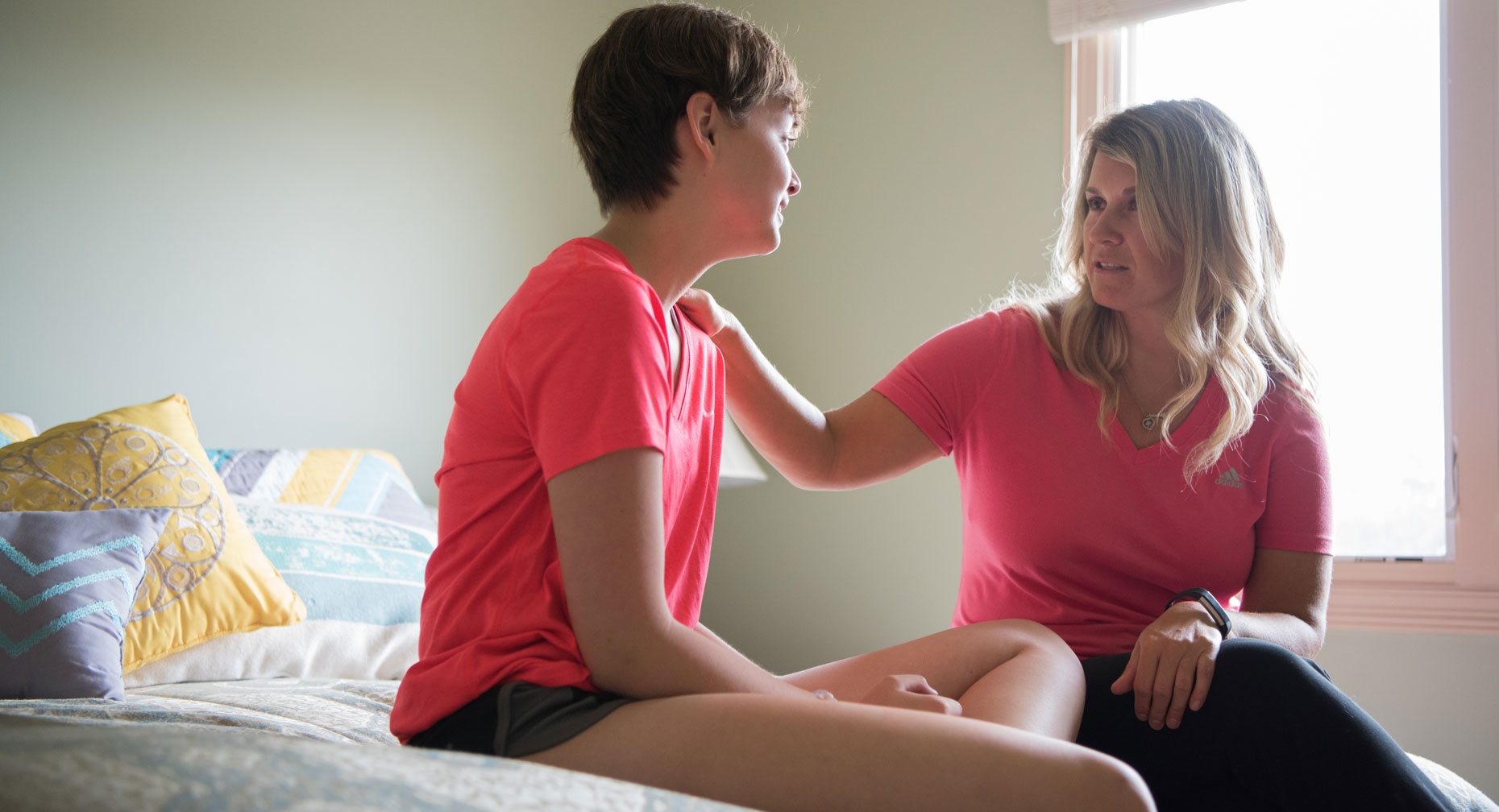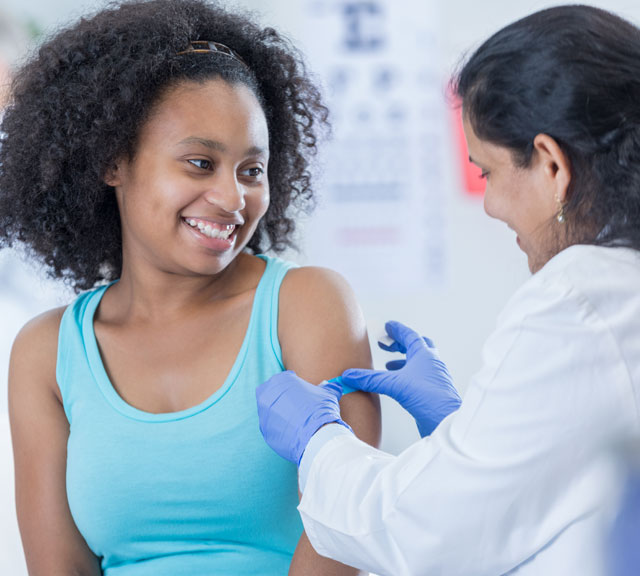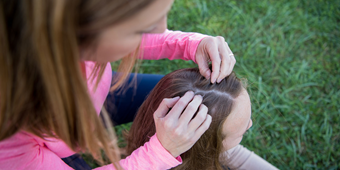HPV Vaccine: Protection for Your Teens

Find Your Perfect Match
Answer a few questions and we'll provide you with a list of primary care providers that best fit your needs.
If you think human papillomavirus (HPV) could never affect you and your family, consider that more than 42 million Americans have the virus. Most people don’t know it because they never develop symptoms or have health problems. Yet, HPV is transmitted through intimate contact or sexual activity, often by people totally unaware that they have the virus.
When it does cause symptoms, HPV may lead to genital warts. Even more serious, it can lead to cancer of the cervix, vagina or vulva in women and cancer of the penis in men. HPV also can cause cancer in both men and women in the back of the throat, tonsils or base of the tongue, or in the anus.
Every year approximately 25,400 women and 19,900 men are affected by cancers caused by HPV, according to the Centers for Disease Control and Prevention (CDC). Family physician Melinda Ruff, MD strongly recommends the vaccine if you’re eligible.
Because no one knows who will develop genital warts or cancers from HPV, the CDC and Dr. Ruff recommend an HPV vaccine for adolescents and young adults. Clinical trials have shown HPV vaccines provide close to 100 percent safe, long-lasting protection against cervical pre-cancers and genital warts.
Who Needs the Vaccine?
HPV infection is most common during the late teens or early 20s. Therefore, doctors recommend that boys and girls ages 11-12 receive two vaccinations over six months, ideally before they have risk of exposure to HPV. After age 15, teens require three shots over six months.
While the HPV vaccine can be given to children age 9 and older, for those not vaccinated during childhood, the CDC and Dr. Ruff recommend vaccination for everyone through age 26. The HPV vaccine also is approved for men and women ages 27 to 45 after consulting with their health care provider about their risk for new HPV infections and the possible benefits of vaccination.
Although the vaccine is highly effective in preventing cervical cancer from HPV, women should still get routine Pap tests to detect precancerous changes from other causes and prevent the development of cervical cancer.

The CDC first recommended the vaccine in 2006. Since that time, the agency has reported a significant decline in HPV infections, genital warts and pre-cancers of the cervix in young women.
HPV infection is most common during the late teens or early 20s.
Is It Safe?
Both the CDC and the Food and Drug Administration have declared the HPV vaccine to be safe, based on numerous research studies over years. It’s made from one protein from the virus that cannot cause HPV, nor can it cause cancer. The most commonly reported side effect from getting the vaccine is redness, mild swelling or discomfort at the injection site.
Find Your Perfect Match
Answer a few questions and we'll provide you with a list of primary care providers that best fit your needs.
Source: Centers for Disease Control and Prevention; Dr. Melinda Ruff, Centerville Family Medicine





